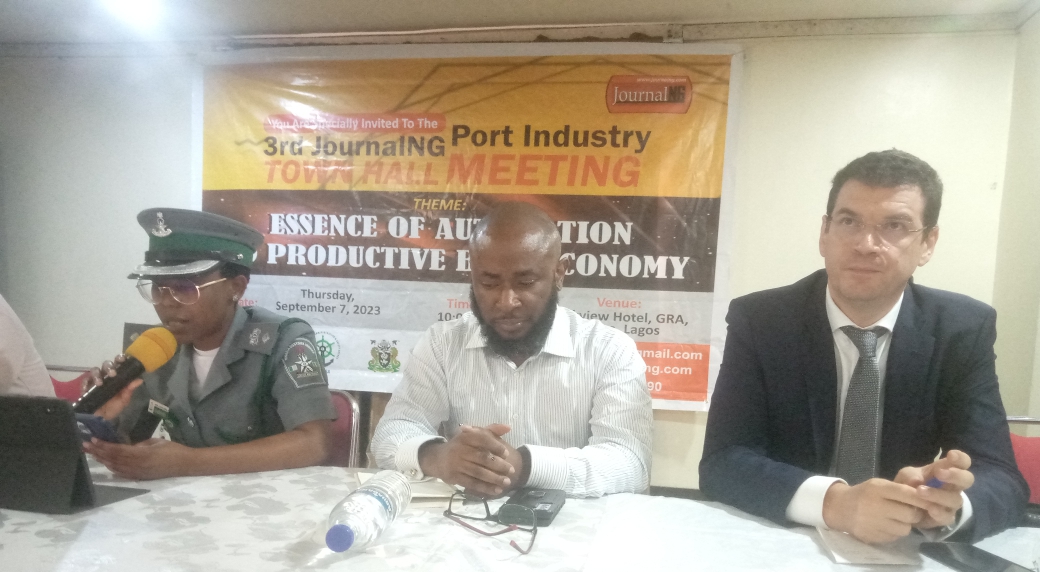The Maritime Workers Union of Nigeria (MWUN) has expressed worry over automation of port services saying that members might be forced to suffer mass job losses if not carried along by employers of labour in human capacity building for workers.
Deputy President General MWUN , Comrade Harry Tonye who disclosed this on Thursday at the 3rd JournalNG Port Industry Town Hall meeting held in Lagos , expressed concern that the rapid introduction of technology and innovations in the maritime domain would lead to job losses.
He advised the relevant government agencies and other stakeholders to ensure that such technological advancement are not at the expense of maritime workers.
The DPG who harped on upskilling of workers of the four components of the union , expressed doubts about job sustainability when the ports would be fully automated , noting that the union is open for discussion on the need to train workers to fulfilling modern trends in port operations.
According to him, employers of labour in the port community should focus on manpower and human capacity development in line with international best practices stressing that shipping line agencies, terminal operators and government agencies like the Nigerian Ports Authority (NPA) have not been able to build capacity for workers to meet up with the dynamism of the automation system in port operations.
Tonye reiterated that port automation in line with the mandate of the blue economy is a guise to reduce the workforce by contract and outsourcing to few individuals at the detriment of maritime workers, but maintained that sustainability and job security is of utmost importance for the union against the background of industry harmony.
He stated that:” We have been talking about automation automation, and as good as automation is, it also has its own disadvantages and one of such disadvantages is that it is going to affect a lot of workers in the maritime space.
MWUN is a major stakeholders in the maritime industry and therefore we look at automation as a guide to reduce the workforce and therefore why we are look at automation as a good thing , we also are looking at it from the other way as a already made process to take the job that is supposed to be done by human beings.
Tonye recalled the port concession of 2006 affected members of the dockworkers branch of MWUN which in turn led to total reduction of labour employees in the industry.
He also noted that the concerns of the union is based job protection of workers adding that technology is mostly acceptable by the service providers but that the workers will also key into the technological advancement to protect jobs of Nigerians through capacity building for them.
In his welcome address, convener of the town hall meeting, Mallam Ismail Aniemu affirmed that with the creation of the new Ministry of Marine and Blue Economy,there is the need to sensitize stakeholders and the government about the need potentials of the sector.
He also stressed that talkshop is expected to set the tone for a credible and viable maritime agenda for the maritime industry.
“Today we have a Ministry of Marine and Blue Economy, but the concept of this year’s theme was prepared several months ago. At that time, we never knew that the government would create a Ministry of Marine and Blue Economy out of the existing Transport Ministry.”
“Nevertheless, we know that in blue economy there are numerous low hanging fruits for economic diversification in Nigeria.
“Stakeholders and experts in this industry have used this talkshop to project their views which are encapsulated as recommendations for the government to consider. We also maximize the advantage of the mass media to propagate the issues emanating from the summit,” Aniemu said.
By Roland Ekama




Comments are closed.